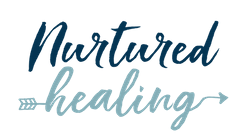If you lived through the 80’s you likely remember this anti-drug commercial with the egg.
I’m sure this is not news to you that just as drugs can have a negative impact on your brain, stress, especially chronic stress, can do the same.
The late Bruce McEwen, a neuroscientist from Rockefeller University, illustrated this when he said, “Because stress changes the way the brain’s neurons communicate with each other, chronic stress can cause our brains, nervous systems, and our behavior to adjust to a vigilant and reactive state.”
Essentially, chronic stress constantly sends your body and brain signals that you are under threat. If left unchecked, it can wreak havoc on your overall well-being and eventually bring you to the point of burnout. I picture this underlying current of stressors, large and small, as cracks in our resilience and ability to respond rather than react.
When our high alert signaling is tripped our pre-frontal cortex or “thinking brain” goes offline. This area of our brain is not only responsible for cognitive behaviors, it also controls our emotional-regulation and self-regulation abilities. It’s no wonder why it’s so easy to feel scrambled and out of control when stress strikes.
Today, we are all feeling a collective stress on top of our everyday stressors. Any life and societal fault lines that existed pre-pandemic have been strained to their breaking point. So what can you do to lower your stress when it seems that the odds are stacked against you?
It may not seem doable when you feel like your brain is fried or you are ready to crack, but you do have options to help ease your stress response and bring your thinking brain back online.
Keep and Leave
Many coping strategies exist for alleviating stress and not all of them are in our best interest. I say this from experience not from a judgemental standpoint.
What have you learned or used during the last year that’s helped you get closer to your ideal life? Or at minimum hasn't caused you to abandon what you seek? Can you name three strategies that align with your values or that have made your life a bit easier? Those strategies are the keepers. Are there ways to ingrain them for good?
What isn’t working? What can you leave behind? Checking the case numbers daily? Drinking yourself silly to sleep at night? Again, this isn’t about judgement (be sure you aren’t judging yourself for these either!). This is about staying true to what you want, even if it’s changed based on the state of the world.
Explore Mindfulness
Incorporating mindfulness into your daily life can help you soften the stress that arises. Jon Kabat-Zinn defines mindfulness as “paying attention on purpose.” It is the practice of bringing non-judgemental awareness to our thoughts, feelings and bodily sensations.
This practice from Mindful.org can help you put space between yourself and what, or who, is bothering you. Please note, that if you find mindfulness distressing or overwhelming you may benefit from modifications to the practice. You are the expert of you - be gentle with yourself and find what is comfortable for you.
Create Connection
Humans are creatures of habits and after a full year of pandemic life many of us have become used to the slower-paced, more socially-isolated life. As the world opens up a bit more it can feel foreign to us to reconnect with others, especially in-person.
While I believe that everyone should go at their own pace and comfort-level when coming out of isolation it is still a human need to connect with others. The author of the Polyvagal Theory, Dr. Stephen Porges says, “Our natural instinctive mode is to engage others to regulate our [own] body.”
Even if you are not ready to go all in on a physically-distanced walk with a friend you can still prioritize connecting with others by doing small things, such as:
Send a text with a compliment.
Make a call and share a joke.
Schedule a Zoom check-in and share gratitude with those on the call.
Listen deeply to someone in proximity to you.
Smile at a stranger in the grocery store or a delivery person (despite being masked, your eyes will still show it).
All of these points of connection can help reduce your body’s stress response and support a feeling of safety. In addition, Dr. Stephen Porges shares ways to nourish your nervous system in this interview.
Influence Your Stress
Your stress response is a normal part of your body and it’s an important part of your nervous system to have online in the event of an actual threat. The biggest takeaway I hope to leave you with is that you can experiment with different ways to influence your stress response when it is stuck on or gets to be too much and find what works for you.
Need help with your experimentation? I’m here to support you. Click here to schedule a complimentary call to learn more.







